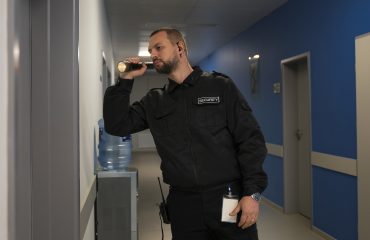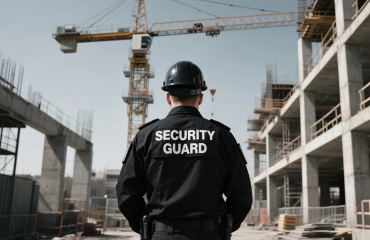The Essential Role of Healthcare Security Services in Canadian Hospitals and Clinics
In recent years, Canada’s healthcare system has faced increasing pressures—not only from rising patient volumes and funding challenges but also from escalating safety concerns within hospital and clinic environments. Incidents involving violence, theft, unauthorized access, and aggressive patient behavior have made healthcare security services an essential component of day-to-day operations.
As healthcare continues to evolve, so must the strategies used to protect it. This article explores the importance of healthcare security services in Canadian hospitals and clinics, how these services support patient and staff safety, and why healthcare facilities across the country are investing in specialized protection.
Why Healthcare Security Services Are Vital in Canada
Rising Threats in Medical Environments
Hospitals and clinics are public-access spaces with high foot traffic, vulnerable to various threats verbal and physical aggression, property damage, theft of medical supplies, and unauthorized access to sensitive areas. The Canadian Union of Public Employees (CUPE) and other healthcare bodies have documented increasing cases of violence against healthcare workers, making hospital security services a growing necessity.
Healthcare facilities are now seen as soft targets—not only for opportunistic crimes but also for emotionally charged situations that can escalate quickly. This makes it vital to have trained, vigilant, and professional healthcare security guards on-site at all times.
Enhancing Safety for Patients, Staff, and Visitors
Security in a healthcare setting does more than deter crime—it fosters a sense of safety for all who enter the facility. From nurses and doctors working long hours to patients receiving critical care, the presence of well-trained medical facility security personnel reassures everyone that safety protocols are in place.
For visitors, guards provide guidance, enforce visiting hours, and respond to inappropriate behavior. For staff, they act as the first line of defense against threats, allowing them to focus on care delivery instead of conflict resolution.
Responsibilities of Healthcare Security Services
Access Control and Surveillance
One of the most crucial functions of any healthcare security service is managing access to the facility. Hospitals and clinics handle sensitive information and life-saving medications, making them prime targets for unauthorized individuals.
Security teams monitor entrances and exits, verify identification, and enforce visitor management protocols. In high-risk areas, such as emergency departments, ICUs, or mental health wards, access control becomes even more critical.
Surveillance systems are monitored around the clock to detect unusual behavior, secure restricted zones, and maintain real-time awareness across the property. Guards can quickly respond to alerts and incidents that require immediate attention.
Integration of Smart Security Technologies
Modern Canadian hospitals increasingly rely on integrated security systems such as badge access, biometric identification, AI-based CCTV analytics, and real-time alert dashboards. These systems, combined with physical guards, create a layered defense strategy to mitigate threats and improve risk management in healthcare.
Emergency Preparedness and Crisis Response
From fire alarms and evacuations to code blacks (bomb threats) and code whites (aggressive patients), hospital security teams must be fully trained in emergency response procedures. In Canadian hospitals, guards often act as the first responders to any escalating situation.
They are responsible for:
- Executing lockdown procedures
- Coordinating with local police and paramedics
- Escorting disruptive individuals from the premises
- Responding to suspicious packages or persons
24/7 On-Site Protection
Most hospitals operate around the clock, and so must their security. Healthcare security service providers in Canada ensure a 24/7 on-site presence, particularly in sensitive areas like emergency rooms, psychiatric units, and long-term care homes.
Healthcare Security and Patient-Centered Care
Preventing Patient Elopement and Self-Harm
In psychiatric and behavioral health facilities, the role of security guards extends beyond surveillance. They are trained in non-violent crisis intervention techniques and mental health de-escalation strategies to manage patients who may be at risk of eloping or self-harming.
Guards also monitor at-risk patients, accompany clinical staff during high-risk procedures, and ensure that protective measures (such as ligature checks) are followed. Their presence helps mitigate both clinical and legal risks while supporting patient dignity.
Managing Visitors and Public Behavior
During peak periods, such as flu season, pandemics, or public holidays, visitor numbers can skyrocket. Guards help enforce visitation policies, maintain order in waiting rooms, and control crowd flow in emergency departments.
They can intervene in situations involving:
- Disruptive or intoxicated visitors
- Unauthorized filming or photography
- Aggressive family members
- Refusal to follow COVID-19 or infection control protocols
Compliance, Liability, and Risk Management
Meeting Canadian Safety and Legal Standards
Every Canadian province sets its standards for health and workplace safety, and non-compliance can lead to penalties or loss of licensure. A professional healthcare security service ensures that the hospital adheres to compliance regulations, including the protection of:
- Patients’ rights under the Personal Health Information Protection Act (PHIPA)
- Staff under the Occupational Health and Safety Act (OHSA)
- Emergency plans under municipal emergency response frameworks
Reducing Legal and Financial Risk
Hospitals and clinics are exposed to numerous legal risks, ranging from violence against staff to data breaches to theft of narcotics. A well-documented security strategy minimizes liability by:
- Recording incidents in detail
- Offering video evidence
- Providing expert testimony
- Assisting in internal investigations
Security staff also collaborate with HR, legal, and administrative teams during employee termination or patient discharge scenarios that carry high risk.
Tailoring Security for Diverse Healthcare Settings
Rural vs. Urban Hospitals
Urban hospitals in Toronto, Vancouver, or Montreal face unique challenges such as:
- High patient turnover
- Public demonstrations
- Gang-related violence
In contrast, rural or remote clinics often deal with:
- Lack of immediate law enforcement
- Drug-seeking behavior
- Transportation-related emergencies
Both require a customized healthcare security service plan, aligned with geographic risks, population density, and community needs.
Long-Term Care and Mental Health Facilities
Long-term care homes and rehabilitation centers need guards with specific training in elder care, dementia-related aggression, and fall risk monitoring. Similarly, mental health units must have security teams skilled in trauma-informed care, de-escalation, and compassionate conflict resolution.
In both cases, guards are not just enforcers, they are care partners who support safe healing environments.
Choosing the Right Healthcare Security Service in Canada
What to Look for in a Provider
Choosing a security partner is not just about filling posts—it’s about finding a team aligned with your care philosophy and operational needs.
Look for providers that offer:
- Licensed, insured, and bonded guards
- Experience in Canadian healthcare environments
- Ongoing training in emergency response, infection control, and patient rights
- Customizable service packages
- 24/7 availability and rapid deployment
Questions to Ask
Before signing a contract, hospital administrators should ask:
- Does your team have training in mental health de-escalation?
- Do you offer incident reporting software and analytics?
- Can you support mobile patrols and temporary security increases? How do you handle HIPAA/PHIPA compliance in your operations?
The Future of Healthcare Security in Canada
As healthcare facilities adopt digital transformation, the future of healthcare security will rely heavily on the integration of physical and cyber systems. Data protection, telehealth security, and remote monitoring solutions will grow alongside traditional guarding.
In addition, trends indicate a greater push toward:
- AI-enhanced surveillance
- Security robots and drones
- Behavioral analytics and predictive threat detection
However, no matter how advanced technology becomes, the need for human presence, empathy, and judgment in high-stakes healthcare environments will remain essential.
Conclusion: A Safer Future Starts with Strong Security
In Canada’s dynamic healthcare system, safety is not just a background concern—it is foundational to the delivery of effective, compassionate care. A professional, well-trained healthcare security service acts as both protector and partner, supporting hospitals and clinics in delivering uninterrupted, high-quality care.
As healthcare continues to evolve, Canadian facilities must prioritize robust healthcare security solutions that address today’s realities and tomorrow’s challenges. Whether it’s preventing patient harm, protecting staff, or managing emergencies, the value of strong security is beyond measure.
 Key Takeaways:
Key Takeaways:
- Healthcare security services are critical to safety in Canadian hospitals and clinics.
- Guards handle access control, emergency response, violence prevention, and compliance.
- Rural, urban, mental health, and long-term care facilities have unique security needs.
Choosing the right security partner ensures safety, compliance, and peace of mind.



